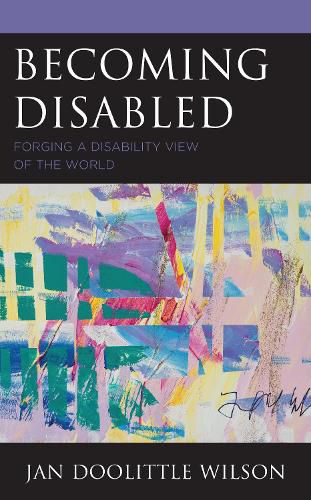Readings Newsletter
Become a Readings Member to make your shopping experience even easier.
Sign in or sign up for free!
You’re not far away from qualifying for FREE standard shipping within Australia
You’ve qualified for FREE standard shipping within Australia
The cart is loading…






Using an autoethnographic approach, as well as multiple first-person accounts from disabled writers, artists, and scholars, Jan Doolittle Wilson describes how becoming disabled is to forge a new consciousness and a radically new way of viewing the world. In Becoming Disabled, Wilson examines disability in ways that challenge dominant discourses and systems that shape and reproduce disability stigma and discrimination. It is to create alternative meanings that understand disability as a valuable human variation, that embrace human interdependency, and that recognize the necessity of social supports for individual flourishing and happiness. From her own disability view of the world, Wilson critiques the disabling impact of language, media, medical practices, educational systems, neoliberalism, mothering ideals, and other systemic barriers. And she offers a powerful vision of a society in which all forms of human diversity are included and celebrated and one in which we are better able to care for ourselves and each other.
$9.00 standard shipping within Australia
FREE standard shipping within Australia for orders over $100.00
Express & International shipping calculated at checkout
Using an autoethnographic approach, as well as multiple first-person accounts from disabled writers, artists, and scholars, Jan Doolittle Wilson describes how becoming disabled is to forge a new consciousness and a radically new way of viewing the world. In Becoming Disabled, Wilson examines disability in ways that challenge dominant discourses and systems that shape and reproduce disability stigma and discrimination. It is to create alternative meanings that understand disability as a valuable human variation, that embrace human interdependency, and that recognize the necessity of social supports for individual flourishing and happiness. From her own disability view of the world, Wilson critiques the disabling impact of language, media, medical practices, educational systems, neoliberalism, mothering ideals, and other systemic barriers. And she offers a powerful vision of a society in which all forms of human diversity are included and celebrated and one in which we are better able to care for ourselves and each other.